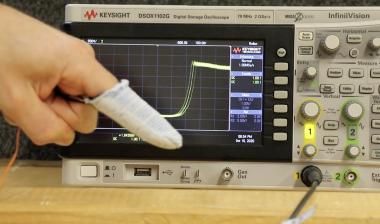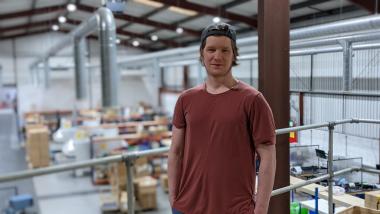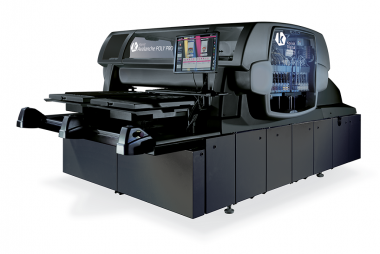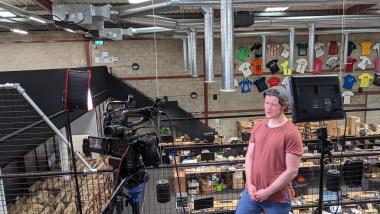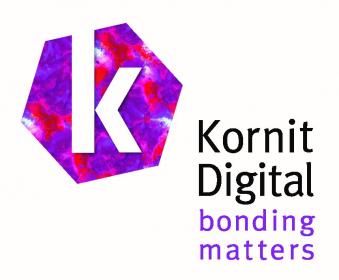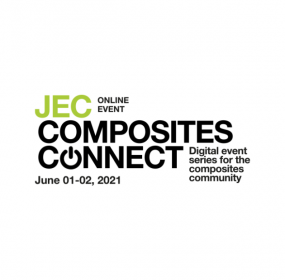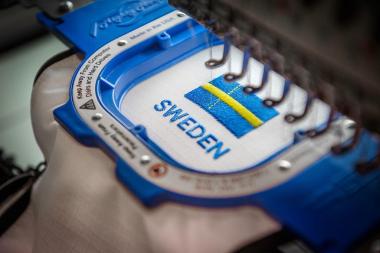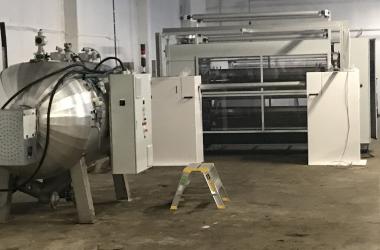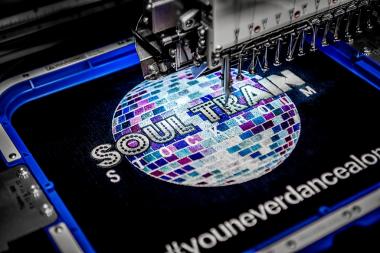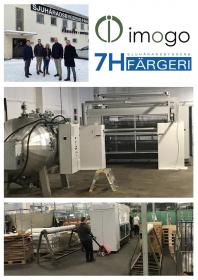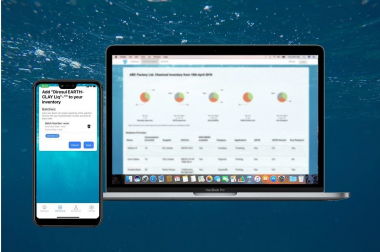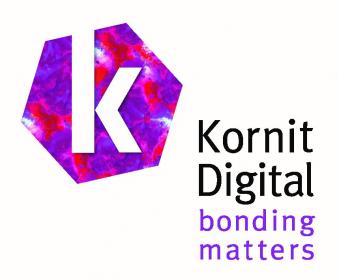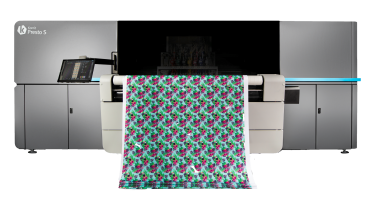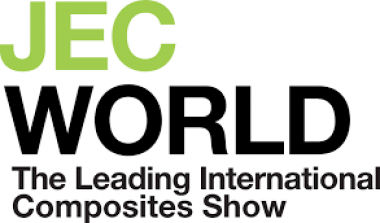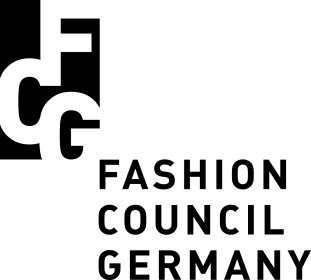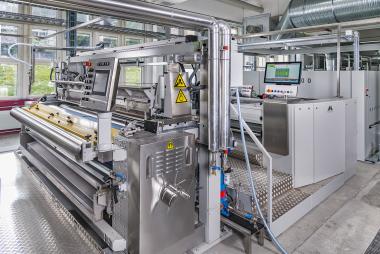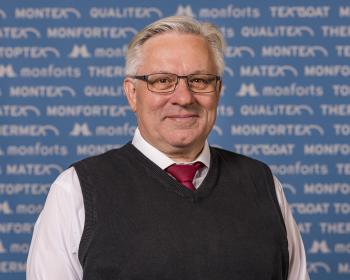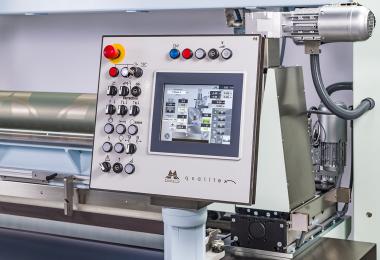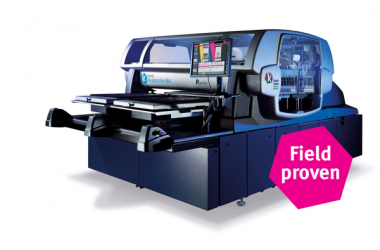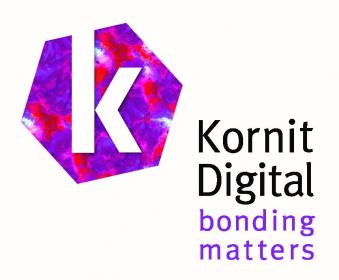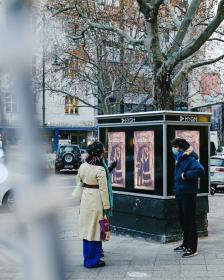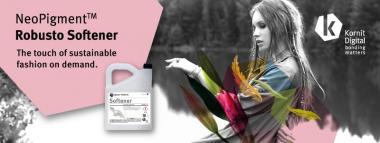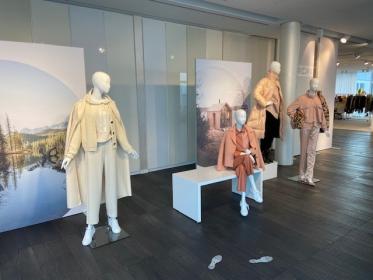DITF: SMART TEXTILES erstmals digital
Hightech-Textilien sind ein weltweiter Wachstumsmarkt mit überraschend vielen Anwendungsmöglichkeiten. Beim Anwenderforum SMART TEXTILES am 24. und 25. März 2021 tauschten sich auch in diesem Jahr Industrie und Wissenschaft über neue Produkte, Trends und Marktchancen aus. Die Veranstaltung fand aufgrund der anhaltenden COVID 19-Pandemie in einem abwechslungsreichen digitalen Format statt.
Textilien mit intelligenten Funktionen sind die Zukunft. Wichtiges Beispiel ist die Automobilindustrie. Die Referenten präsentierten Textilien als Schnittstelle zwischen Mensch und High-Tech und als formschönes Interieur kombiniert mit vielen Funktionen. Ergänzt wird die hohe Funktionalität der Fahrzeuge mit interaktiver Kleidung für die Fahrer. Sie wärmt und kühlt je nach Bedarf, leuchtet automatisch beim Verlassen des Fahrzeugs, navigiert und lädt sich wieder auf, sobald sie an den Kleiderhaken gehängt wird. Auch smarte Mützen können in manchen Bereichen Helme ersetzen, indem sie für mechanischen Schutz und Sicherheit des Trägers sorgen und Insekten abwehren.
Über den Anwendungsbereich Mobilität hinaus gibt es vor allem in Medizin und Pflege Bedarf an intelligenten Textilien. Sensorische Sohlen in den Schuhen analysieren den Gang und helfen damit Ärzten und Physiotherapeuten, die optimale Therapie auszuwählen - zum Beispiel gegen Rückenschmerzen. Taschentücher, Stofftaschen oder Handschuhe aus speziellen Silbertextilien töten Viren und Bakterien. Eine Innovation, die in der Corona-Pandemie besonders gefragt ist.
Neue Textilelektroden überleben inzwischen sogar viele
Waschgänge und machen smarte Textilien alltagstauglich. Das ist besonders wichtig bei Sportbekleidung, mit der auch Hobbysportler gerne ihr Training tracken, auswerten und optimieren. Neu entwickelte Stoffe haften großflächig am Körper und stellen auf diese Weise sicher, dass Vitalparameter zuverlässig erfasst werden.
Waschbar und leitfähig sind auch Druckknöpfe, die im wahrsten Sinne des Wortes Kontaktierung per Knopfdruck herstellen. In den robusten Knöpfen steckt Elektronik wie Sensoren, Aktoren, LEDs und Schalter.
Das Anwenderforum zeigte auch in diesem Jahr, dass viele Visionen inzwischen realisierbar und marktfähig sind. Herausforderungen sind in Zukunft, nachhaltige Materialien und Prozesse einzusetzen sowie die E-Textiles zu recyceln. Darüber hinaus stellt die Datenflut, die durch die smarten Textilien erzeugt werden kann, hohe Ansprüche an die Sicherheit und die Verarbeitung der Daten.
Das Anwenderforum SMART TEXTILES wird jährlich von den Deutschen Instituten für Textil- und Faserforschung Denkendorf (DITF), dem Forschungskuratorium Textil e. V. in Berlin und dem Textilforschungsinstitut Thüringen Vogtland e. V. (TITV) in Greiz veranstaltet, um den Austausch von Industrie und Wissenschaft in der in der D-A-CH-Region zu fördern.
Das 10. Anwenderforum SMART TEXTILES findet vom 2.-3. März 2022 statt und ist wieder als Präsenzveranstaltung kombiniert mit einer Firmenbesichtigung geplant. Der Veranstaltungsort wird rechtzeitig bekanntgegeben.


